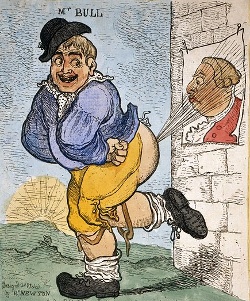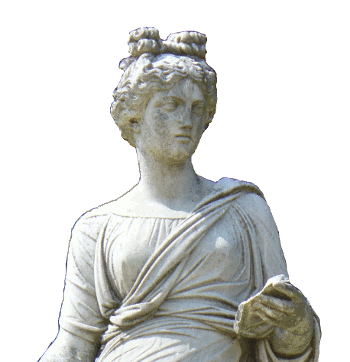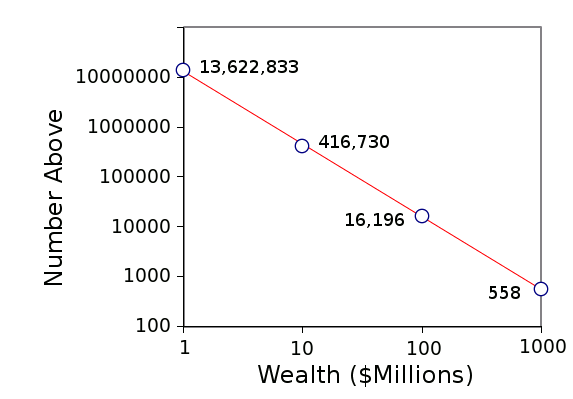Cliodynamics
April 24, 2013
Children have a fascination with
flatulent emission (a.k.a., "farting"), a topic that's enriched many
authors of
children's books.[1-2] That's why my children always laughed when I said that people are like
gas. I wasn't talking about farts, but about the idea that the same
statistical mechanics involved in deriving the general properties of gases can be used to derive the general properties of
human society.

Flatulence as Social Commentary.
A 1798 political cartoon by Richard Newton (1777-1798)
This jab against William Pitt, the Younger shows John Bull, a personification of the United Kingdom, directing his scorn towards a poster of George III.
(Slightly modified Wikimedia Commons image.)
There were attempts to explain the
social influences on the
human condition based on its history in the days before
ubiquitous computing and
statistical number-crunching.
Torsten (Thorstein) Veblen, was a
sociologist and
economist who thrived around 1900. In "
The Theory of the Leisure Class," Veblen argued that present society was organized in the same way as
feudalism. There was an
upper class that asserted its special status by
conspicuous consumption, the wasteful spending of its riches.
When economists discovered computers, they thought that their newfound ability to
quantitatively model the historical record would lead to other insights. It appears, however, that more data leads mostly to more
published papers, but not much understanding.
Nassim Nicholas Taleb argued in his popular book, "
The Black Swan," that any such sort of
financial modeling will lead to ruin, since there's always a small
probability that an unexpected event will topple any model.[3]
Black swans appear in my
novel, "
Mother Wode."
There was a black swan in
Isaac Asimov's Foundation series in the form of a
mutant called "The Mule." In this series of three novels, Asimov develops the idea of
psychohistory, which is the core of my "people are like gas" statement. The huge number of people in Asimov's
galactic empire make the
analogy to a gas that much better, so that the unfolding of galactic history can be predicted with certainty.
Paul Krugman, a
Nobel Laureate in Economics, confessed in his
blog in
The New York Times, "I wanted to be a psychohistorian when I grew up, and economics was as close as I could get."[4]
If Krugman were coming of age today, he would have a career option much closer to psychohistory; namely,
cliodynamics.[6-8] Cliodynamics, a term coined in 2003 by
Peter Turchin, a professor of
Mathematics and
Ecology/
Evolutionary Biology at the
University of Connecticut, is the mathematical modeling of historical trends with a view to
prediction of the future. The word comes from
Clio (Κλειω), who was the
muse of
history.

Statue of Clio by Frederick Ochs (1857), part of a wall fountain at Sanssouci, the summer palace of Frederick the Great (1740-1786).
Sanssouci and its gardens are a World Heritage Site.
(From a photograph by Steffen Heilfort, Via Wikimedia Commons.)
While cliodynamics attempts to study social change quantitatively on long time scales, asking questions such as the reasons for the
collapse of civilizations,
cliometrics looks at the smaller processes therein. The 1993
Nobel Prize in Economics was awarded to
Robert Fogel and
Douglass North for their pioneering work in cliometrics. North's 1968 paper, which showed that organizational change, rather than advances in
technology, increased the
productivity of
ocean shipping, was specifically cited in his Nobel Prize award.[5] This result is somewhat surprising, considering the obvious
efficiency of the technology behind
Sea-Land and
its derivatives.
A research field comes of age with publication of its first topical journal.
Cliodynamics: the Journal of Theoretical and Mathematical History published its first issue in 2010 as a web site hosted by the
The University of California-Riverside with Peter Turchin as editor.[7-8] Cliodynamics is an
open access, web-based, publication, and there are no plans to produce a paper version.
As Turchin wrote in his editorial in the journal's first issue,
"'Cliodynamics' is a transdisciplinary area of research integrating historical macrosociology, economic history/cliometrics, mathematical modeling of long-term social processes, and the construction and analysis of historical databases. Cliodynamics: The Journal of Theoretical and Mathematical History is an international peer-reviewed web-based/free-access journal that will publish original articles advancing the state of theoretical knowledge in this discipline. 'Theory' in the broadest sense includes general principles that explain the functioning and dynamics of historical societies and models, usually formulated as mathematical equations or computer algorithms. It also has empirical content that deals with discovering general empirical patterns, determining empirical adequacy of key assumptions made by models, and testing theoretical predictions with the data from actual historical societies."[8]
Not surprisingly,
historians, who come from a
literary tradition, have been resistant to their field being overrun by mathematicians, statisticians and
computer scientists. The same was true in the past for their colleagues in
sociology,
anthropology and economics, but all these fields have succumbed to quantification.[6] The mathematics involved are not that difficult. It includes statistical techniques, such as
spectral analysis, which are accessible to any
undergraduate, and to anyone with the right software packages. I recommend the
free and open source software (FOSS) tools, "
R" and
Gnumeric.
As they say, "
The proof of the pudding is in the eating," so the cliodynamics approach is to develop a model with one historical
dataset, and then test it with another.[6] One controversial cliodynamics
theory that appears to have validity is the cyclic instability of
agrarian states. The historical record from
Ancient Rome, through
Medieval England, to the recent history of the
United States, shows waves of instability at hundred year intervals.[6]
A cause for this might be a
population's growth beyond its ability to act productively. This causes falling
wages, and increased
government deficit, and the inability of educated people to find appropriate employment.[6] This appears to be today's situation in the US.
Going back to Veblen's conspicuous consumption and the initial theme of today's article, I present the following
graph derived from data found in an article on the same web site as the Cliodynamics journal, but not a part of the journal's contents.[9] It shows how nicely mathematics can explicate an economic fact.

Estimated US millionaires/billionaires in the year 2000. The data follow a perfect line on a log-log plot. (Data from ref. 9, graphed using Gnumeric.)
References:
- Shinta Cho, "The Gas We Pass: The Story of Farts," Kane/Miller Book Pub. (September 1, 1994), ISBN-13: 978-0916291525 (via Amazon).
- William Kotzwinkle, Glenn Murray and Audrey Colman, "Walter the Farting Dog," Frog Children's Books (November 1, 2001), ISBN-13: 978-1583940532 (via Amazon).
Farts have culture - Here's the Latin Edition, "Walter Canis Inflatus."
- Nassim Nicholas Taleb, "The Black Swan: The Impact of the Highly Improbable," Penguin (January 1, 2008), 480 pages, ISBN-13: 978-0141034591 (via Amazon).
- Paul Krugman, "Economic science fiction," The New York Times, May 4, 2008.
- Alfred Nobel did not establish an economics prize. It was established by the Sveriges Riksbank, Sweden's central bank, on the occasion of its 300th anniversary in 1968. For that reason, it's sometimes called the Nobel Memorial Prize in Economic Sciences to distinguish it from the other prizes. There are several interesting theories why Alfred Nobel excluded things such as mathematics and economics from his awards. One is that his wife was having an affair with a mathematician. Nobel, however, had never married. The real reason might be that his will endowed the prizes "to those who, during the preceding year, shall have conferred the greatest benefit on mankind." Most new mathematics is only found useful long after the death of its inventor.
- Klint Finley, "Mathematicians Predict the Future With Data From the Past, Wired, April 10, 2013.
- Cliodynamics: The Journal of Theoretical and Mathematical History.
- Peter Turchin, "Launching the Journal," Cliodynamics, vol. 1, no. 1 (2010).
- James B. Davies, Anthony Shorrocks, Susanna Sandstrom and Edward N. Wolff, "The World Distribution of Household Wealth," escholarship.org web site, July, 2007, p. 26.
Permanent Link to this article
Linked Keywords: Child; Children; flatulence; flatulent emission; author; children's literature; children's books; ideal gas; gas; statistical mechanics; human society; social commentary; editorial cartoon; political cartoon; William Pitt, the Younger; John Bull; United Kingdom; George III of the United Kingdom; Wikimedia Commons; social influence; human condition; ubiquitous computing; statistics; Torsten (Thorstein) Veblen; sociology; sociologist; economist; The Theory of the Leisure Class; feudalism; upper class; conspicuous consumption; quantitative research; quantitative; computer simulation; computer model; scientific literature; scientific publication; Nassim Nicholas Taleb; The Black Swan; financial modeling; probability; Black swan theory; novel; Mother Wode; Issac Asimov; Foundation series; mutant; psychohistory; galactic empire; analogy; Paul Krugman; Nobel Memorial Prize in Economic Sciences; Nobel Laureate in Economics; blog; The New York Times; cliodynamics; Peter Turchin; Mathematics; Ecology; Evolutionary Biology; University of Connecticut; forecasting; prediction of the future; Clio; muse; history; fountain; Sanssouci; Frederick the Great (1740-1786); societal collapse; collapse of civilizations; cliometrics; Robert Fogel; Douglass North; technology; productivity; ship transport; ocean shipping; efficiency; Sea-Land; containerization; Cliodynamics: the Journal of Theoretical and Mathematical History; The University of California-Riverside; open-access journal; historian; literature; literary tradition; computer scientist; sociology; anthropology; spectral density estimation; spectral analysis; undergraduate; free and open source software; FOSS; R programming language; Gnumeric; The proof of the pudding is in the eating; dataset; theory; agriculture; agrarian; Ancient Rome; England in the Middle Ages; Medieval England; United States; population growth; wages; government deficit; chart; graph; Shinta Cho, "The Gas We Pass: The Story of Farts," Kane/Miller Book Pub. (September 1, 1994), ISBN-13: 978-0916291525; William Kotzwinkle, Glenn Murray and Audrey Colman, "Walter the Farting Dog," Frog Children's Books (November 1, 2001), ISBN-13: 978-1583940532; Walter Canis Inflatus; Nassim Nicholas Taleb, "The Black Swan: The Impact of the Highly Improbable," Penguin (January 1, 2008), 480 pages, ISBN-13: 978-0141034591.